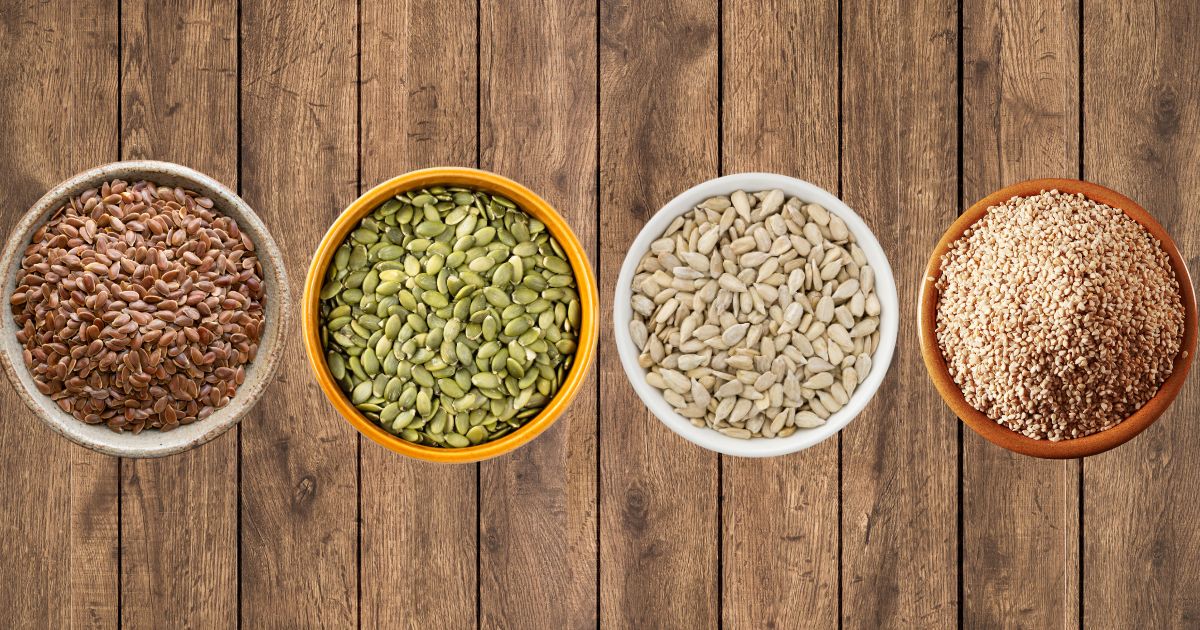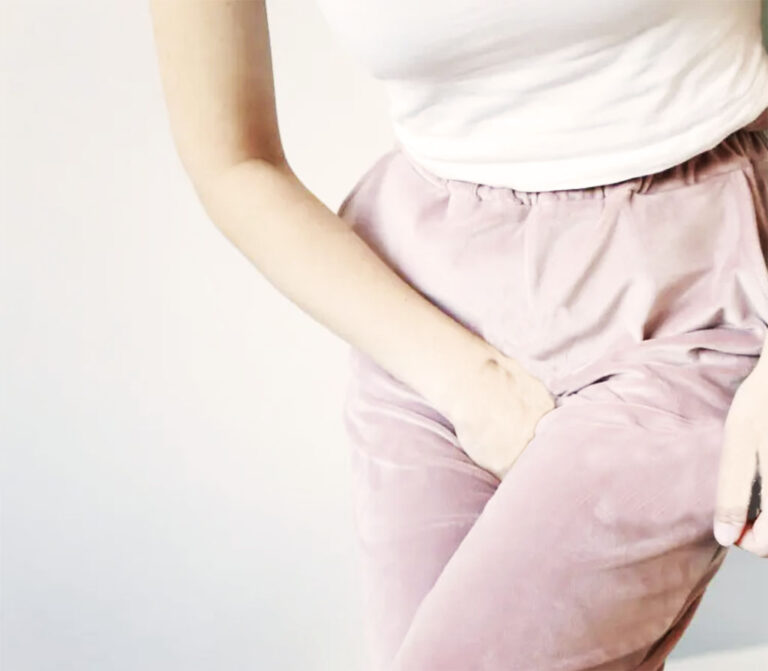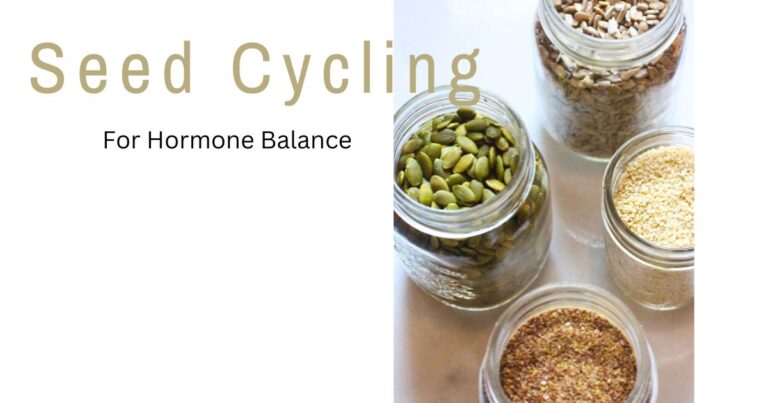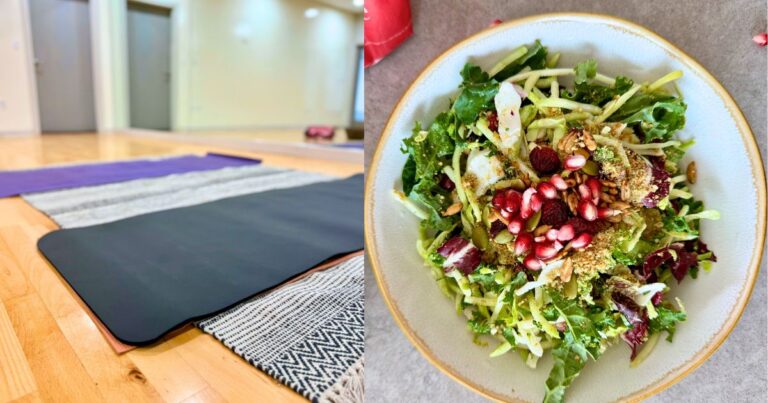Does seed cycling work?
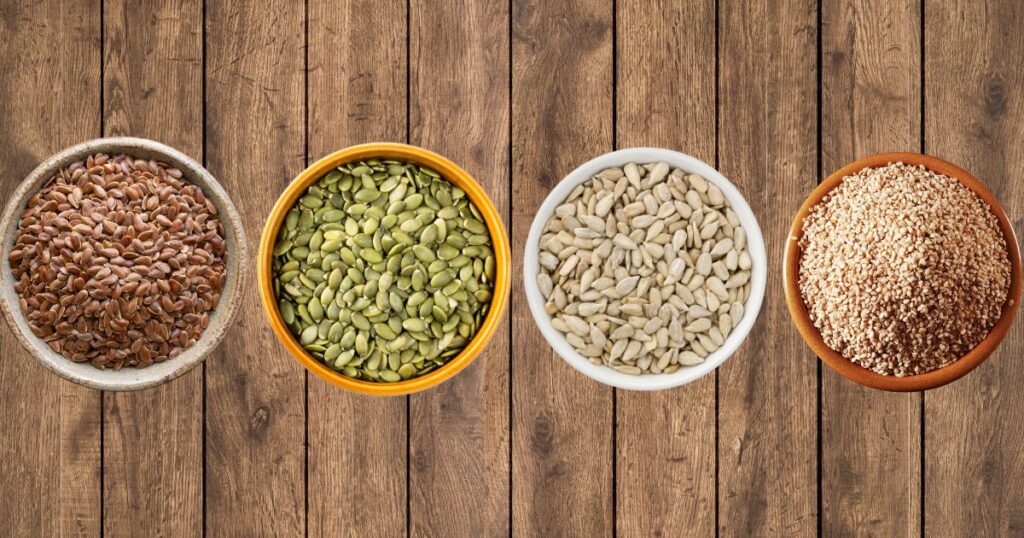
If you are looking into understanding your hormones and navigating the season of perimenopause and menopause, you have likely heard about seed cycling. I’m here to answer the question: Does seed cycling actually work, or is this just another health fad? From what I have researched, there is no evidence that a specific seed cycling regimen works for balancing hormones. Research hasn’t been conducted on taking a specific seed mixture at a particular time of the month. However, the nutrients in these seed mixtures have been proven to aid in hormone balance. Read on for more!
What is seed cycling?
Seed cycling is just as it sounds: rotating four specific seeds (pumpkin and flax, sesame and sunflower) throughout the menstrual cycle to support the balance of our two main sex hormones, estrogen and progesterone.
Does seed cycling actually work, or is it just another health trend?
The concept of seed cycling holds a lot of promise. Wouldn’t it be amazing if your hormones were magically balanced by taking a couple of tablespoons of seeds daily? Well, can it be so? In this blog, we will break it all down. Take a read and see what you think!
What is true about seed cycling?
- Seed cycling has not been scientifically proven to play a role in hormonal balance. That is, the cycling and consumption of specific seeds on a certain day of the month has not been scientifically proven.
- That said, research exists on the benefits of specific nutrients in seeds and their role in hormone production and balance.
- Seeds are an integral part of a healthy diet.
- Pumpkin seeds, flax seeds, sunflower seeds, and sesame seeds, all contain high levels of micronutrients and fatty acids that have been shown to positively impact overall health. In this way, they can positively contribute to your menstrual cycle.
- They may have a hormonal impact through the various nutrients found in these seeds.
- Vitamin E, Omega-3, and Omega-6 are essential for hormone production and ovarian follicular function.
- Zinc in pumpkin and sesame helps with the formation of the corpus luterum (which produces progesterone in the ovaries) and helps the uterine lining ready for implantation.
- Selenium supports ovulation and fertility. Selenium also helps liver detoxification.
- Lignans (in flax and sesame seeds) help keep estrogen levels healthy through the production of enterolactones in the gut, which help maintain healthy estrogen levels.
Let’s break down the individual seeds and their role in hormonal balance
Flax seeds
Flax seeds help promote regular ovulation and the production of progesterone. They also help eliminate excess estrogen. Flax seeds have also been found to lower the production of our stress hormone, cortisol, which would also help the body produce more of the necessary sex hormones.
Pumpkin Seeds
There are many health benefits to eating pumpkin seeds. You can read about the many benefits of pumpkin seeds here. Concerning hormonal health, pumpkin seeds contain zinc, which increases the production of Follicle follicle-stimulating hormone (FSH), which in turn causes ovulation and leads to the production of progesterone.
Sesame Seeds
Sesame seeds are high in zinc, which aids in progesterone production. They also contain phytoestrogens, plant compounds similar to estrogen, and lignans, which help block excess estrogen.
Sunflower Seeds
Sunflower seeds contain vitamin E and zinc, aiding in progesterone production. They also contain selenium, which helps with liver detoxification.
In summary: Is it worth it?
I would say, “yes!” Seed cycling is worth it if it helps you consume more of these seeds daily or regularly. I know that the convenience of the seed cycling kits has improved my daily seed consumption. It is important to know that it may not matter so much which seeds you consume at which time of the month. Again, there is limited research on the idea of seed cycling. Still, regular consumption of these four seeds has been proven to have many health benefits, specifically around the health of our reproductive system. Try it out!
Check out this post for more information on seed cycling and what it is.
medical disclaimer
The information on this website is intended solely for educational purposes and cannot substitute for professional medical advice. Please seek input from your primary medical provider if you make changes to your diet in any way.
Resources
- Romm A. Seed Cycling? Here’s Why You Don’t Need To. Aviva Romm, MD. Published September 18, 2019. Accessed October 25, 2024. https://avivaromm.com/seed-cycling/
- Jane M. Top 11 Science-Based Health Benefits of Pumpkin Seeds. Healthline. Published September 24, 2018. Accessed October 25, 2024. https://www.healthline.com/nutrition/11-benefits-of-pumpkin-seeds#TOC_TITLE_HDR_4
Please join my newsletter below to stay informed on new blog posts on other women’s health topics.

